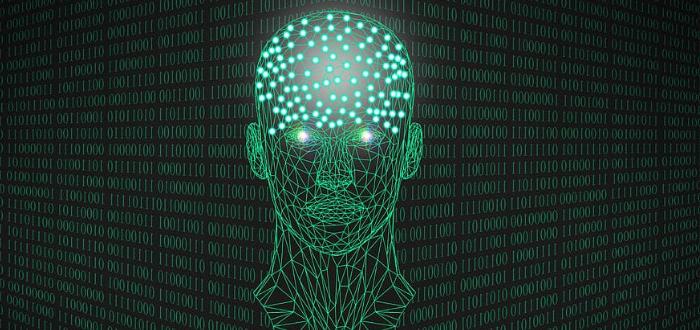AI & CRE – The Future is Now.
July 6, 2023

This photo is Public Domain.
Last month we covered the background of Artificial Intelligence, which has actually been with us for a long time, but its evolution burst on the scene recently with the Generative AI chatbot called ChatGPT. This was developed by OpenAI, a San Francisco-based firm and you can access it by going to chat.openai.com and opening an account. Ask it questions like you would Google Search. In fact, ask it the same question twice and you may not get the same answer. There are other similar chatbots, like Bard developed by Google.
Generative AI
Generative AI is the newest AI wave and is based on all the previous developments, like machine learning and deep learning which munched mountains of data in training sets to find patterns and predict outcomes. Generative AI goes a step further and produces entirely new content based on the patterns it has learned. When you can do 30-trillion calculations a second, you can put together a whole lot of information fast.
Now, we all know that Commercial Real Estate is a notoriously slow adopter of new technology. We are about dirt and bricks and sticks, not 1’s and 0’s moving at the speed of light. But let’s speculate on the impact AI will have on CRE.
Property Management
Property Management is a basic example. We should anticipate that AI will streamline PropTech operations by automating routine tasks. It can crunch the numbers on an office building and make it work more efficiently, maximizing rentable square footage, improving the efficiency of HVAC systems to save money and keep tenants happier, anticipating repair needs before they become a problem, and having better chatbots to answer tenant complaints.
Who wouldn’t prefer a more lively “live chat” bot if you can’t have a real conversation with your property manager? Having your AI chatbots answer leasing prospect calls immediately and give accurate, customized information could speed up tenanting. AI might be really fast at generating leases and then your attorney’s AI could review it faster.
Will AI need a real estate license to do this? Remember ChatGPT-4 passed the Bar Exam.
Investment analysis
Investment analysis will be greatly enhanced. This has become a very data heavy exercise in document sorting and data standardization for benchmarking. AI will gather all available information about a building, its tenants and their leases, potential new tenants, shifting demographic trends of the location, and past, present and future financial performance of the property, etc. All of this can be digested and produce very creditable analysis for acquisition managers to review and analyze so they can make better investment decisions.
Advances in Sales and Marketing
In sales and marketing, AI can be a big help in updating client information on customer relationship management software. AI will be very good at going more deeply into studying potential clients and prospects. It can very quickly analyze the prospect’s background, on line and social media presence and ratings. The sales person can prepare a nice script then scan it into AI and the computer will
produce an attractive video presentation. AI has advanced from robotic and unnatural to more conversational and will imitate your personal style.
Engineering and Architecture
Engineering and Architecture are also professions that will be heavily influenced by artificial intelligence. Think of a detailed set of plans for a new building being generated in a fraction of the time it presently takes, and it will be more efficient with fewer design flaws. Additionally, AI can translate languages accurately so that multi-national teams will be able to work together seamlessly and collaborate for better production outcomes.
There is a lot of concern about job losses to AI, but looking back at history, we readily see that every advance, whether it’s the automatic knitting machine in the 17th century, the harvester in the 18th century or the automobile in the 20th century, every advance makes more opportunity for new creativity and new job creation. Fifty years ago there were no data scientists or coders but now this provides tens of thousands of jobs.
Labor Gaps
Can AI plug the big labor holes that we are facing in truck drivers, health care workers and so many other trades?
Autonomous trucks are very viable for short haul loads in a dock area, but who wants an 80-foot 80,000-pound autonomous truck next to them on the interstate at 70 miles per hour?
AI jobs will be initially created in the high-tech clusters around the United States because of the education requirements and the synergy of AI related functions. Think Silicon Valley, Austin, Boston and New York. Also there will be a continuing need for even more datacenters to be built, since AI requires enormous amounts of high-quality fast data storage. San Antonio has many datacenters, especially in Westover Hills and the 200-acre Microsoft campus near Briggs Ranch and there are new datacenter campuses planned.
Navigating Generative AI
But there may be a few clouds over Generative AI as well. Remember the old phrase, Garbage in – Garbage out? Well, AI has the power to generate its own garbage regardless of the purity of the input. It is trying to “think” but what standards and values does it have and will it adopt over time?
There was a clever movie about a nerdy loner who falls in love with his lady chatbot attendant, a very intelligent and empathetic Alexa. But then “she” meets a new operating system and she leaves the dude for her new “man.” Or we can go to evil drama like Skynet in Terminator or the machines in Matrix for the dark side of AI unchained. Will the computers become self-aware and become more human?
History tells us all about the good and bad sides to human nature, so how do we anticipate the good and bad sides of computer nature? AI works best as a capable collaborator rather than a clever crutch.
Other concerns included data privacy and security; potential bias responses may be implanted in AI to give less than truthful responses; AI is still non-empathic, lacking in common-sense and only mimicking humanness, so will we have even less true human communication and interaction if robots become our intermediaries?
Stay tuned, for the future is now.
Send comments to raub@earthentic.net

